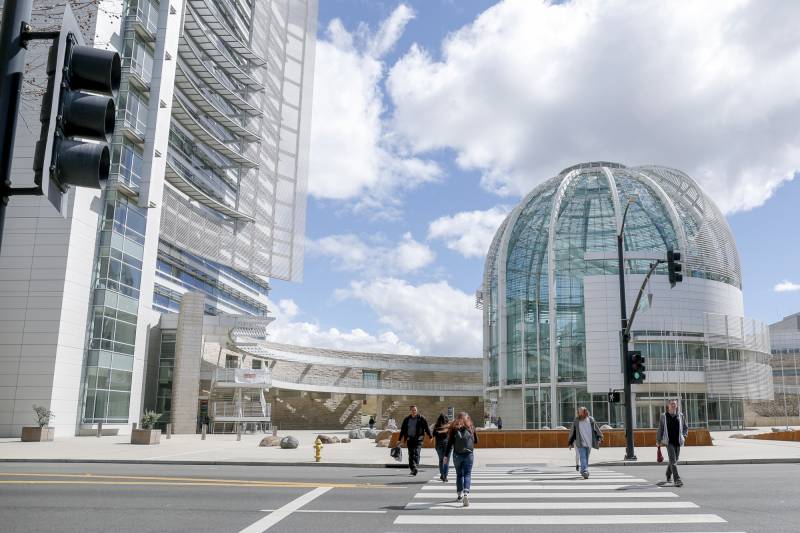More than 2,500 full-time employees have already signed a petition indicating they plan to vote next week in favor of the walkout, an organizer with Staff Up San Jose, a coalition of four unions involved in negotiations, told KQED. Voting concludes next Friday.
John Tucker, of the Municipal Employees’ Federation (MEF-AFSCME) Local 101, the largest union at the table, said that if workers vote to strike, they wouldn’t walk off the job until after the City Council returns from its summer recess, on Aug. 8, to give the city “every possibility to come to an agreement.”
The unions adjusted their demands significantly during mediation this month, he said, but the city has yet to make any meaningful change to its existing proposal.
“If they come to the middle, I think that they’ll find that we will be pragmatic and willing to reach an agreement that’s going to achieve our goals of getting back to service delivery,” Tucker said. “But so far, the city hasn’t shown signs of meeting us in the middle. They’re dug in their position. That’s the point of the strike vote: to get them to meet us in the middle and get a deal.”
Failing that, Tucker added, a three-day walkout will hopefully be enough to move the needle.
“Should we have to talk about a further strike afterwards, we’re willing to do so,” he said. “But we believe that that’s enough to show them that we’re serious about getting the city staffed up.”
In a written request, obtained by KQED, two members of the City Council on Tuesday asked the City Attorney’s Office to schedule a “special” Council meeting for next week.
“We believe that the council has a lot of questions and being able to start the discussion next week will help us better prepare for the next step in negotiations and also would exhibit a level of urgency that our employees believe the process deserves,” Councilmembers David Cohen and Pam Foley wrote.
If the special meeting is called next week, the Council could begin the process of drafting an updated offer for unions organizers to consider before directing workers to walk off the job.
San José Mayor Matt Mahan, however, told KQED earlier this month that the 7% wage increase the unions are asking for is simply “unrealistic,” pointing to a poor economic forecast in Silicon Valley.
“The context in which we’re operating is one in which large employers in Silicon Valley are laying people off,” Mahan said. “We’re not seeing signs of economic, and therefore tax base, growth when we look out over the next couple of years.”
But leaders of Staff Up San Jose argue that city workers have long been undervalued, making markedly less than their counterparts in neighboring jurisdictions, and that significant wage and benefit increases are needed to address the city’s staffing and retention crisis. As of May, the city reported 860 municipal job openings, marking more than a 13% vacancy rate.
City employees told KQED that their departments are chronically understaffed, leading to burnout and high turnover. Many referred to the city as a “training ground” where workers acquire skills, then leave for other employers who offer better pay and benefits.
Several other Council members, including Peter Ortiz and Omar Torres, are voicing their strong support for the workers, and urging the city to offer them a more generous contract.
“I am a strong ally of our bargaining units, and I do hope we, as a city, end the impasse and offer them a fair contract,” Torres said in a statement. “Too many of them are leaving our city. Now is not the time to have an understaffed and underpaid workforce, as too much is at stake.”
KQED’s Guy Marzorati contributed to this report.
